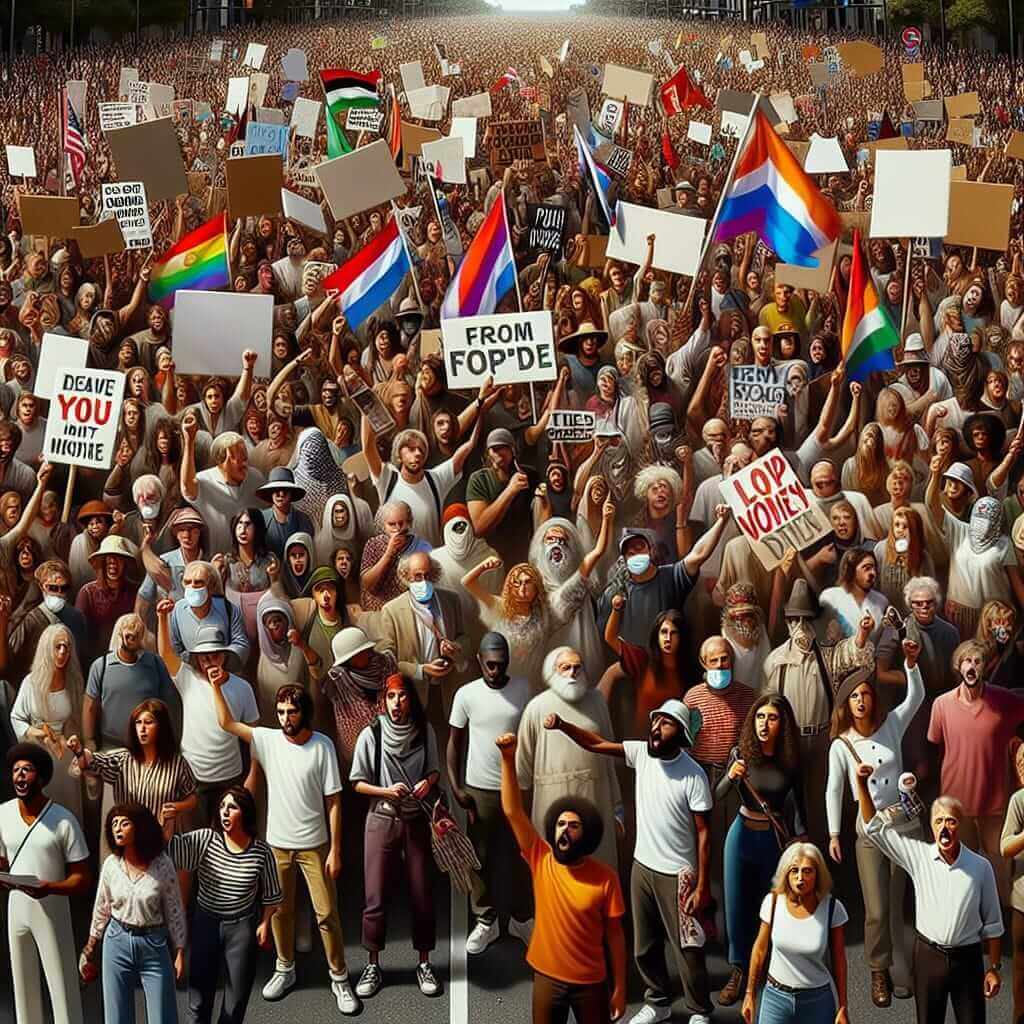With the advent of social networks, political mobilization has witnessed a significant transformation. Understanding how social networks influence political activities is crucial, especially for students preparing for the IELTS Writing Task 2. This topic frequently appears in various forms, such as discussing the influence of technology on politics or the role of social media in modern society. Here’s a look at a few potential IELTS essay titles related to this topic:
Nội dung bài viết
- “To what extent do social networks play a role in political mobilization?”
- “Some people believe that social media has a positive impact on political activism. Do you agree or disagree?”
- “Discuss both the advantages and disadvantages of using social networks for political engagement.”
In this article, we will focus on the first prompt and provide a detailed essay, complete with analysis and key vocabulary.
Main Content
Chosen Essay Prompt
To what extent do social networks play a role in political mobilization?
Essay Analysis
The essay asks for an analysis of the extent to which social networks contribute to political mobilization. It requires discussing both the significant influence and any limitations. Structurally, the essay should feature an introduction, multiple body paragraphs exploring various facets of the role of social networks in political mobilization, and a conclusion summarizing the findings.
Sample Essay
In recent years, social networks have become an indispensable tool for political mobilization. This essay will explore the extent to which social networks contribute to political activities, arguing that while they offer numerous advantages, there are also several notable drawbacks.
First and foremost, social networks have revolutionized the way political information is disseminated. Platforms like Twitter and Facebook facilitate rapid sharing of news and opinions, allowing political movements to gain momentum quickly. For instance, the Arab Spring is often cited as a prime example of how social media can mobilize citizens against oppressive regimes. This immediacy and wide reach enable activists to organize protests, spread their messages, and rally support in real-time.

However, while social networks can be powerful tools for rallying support, they also have limitations. One significant concern is the spread of misinformation. Fake news and misleading information can easily go viral, potentially swaying public opinion based on falsehoods. This not only undermines the integrity of political movements but also erodes trust in legitimate news sources. For example, during the 2016 US Presidential election, numerous false reports were widely circulated on social media, affecting voter perceptions and decisions.
Moreover, the echo chamber effect is another drawback of using social networks for political mobilization. These platforms often use algorithms that show users content that aligns with their existing beliefs, creating polarized communities. As a result, individuals are less likely to be exposed to diverse viewpoints, impeding meaningful political dialogue and compromise. This phenomenon can lead to increased political division and reduced willingness to engage with opposing perspectives.
In conclusion, social networks play a pivotal role in political mobilization by enabling rapid dissemination of information and fostering organization among activists. However, they also pose significant challenges, such as the spread of misinformation and the creation of echo chambers. Therefore, while acknowledging the substantial impact of social networks on political activities, it is crucial to address these issues to harness their full potential effectively.
Word Count: 320
Key Points to Consider When Writing
-
Vocabulary: Utilize relevant vocabulary related to politics, social media, and mobilization.
- Example: “misinformation,” “echo chamber,” “mobilization”
-
Structure: Ensure clear structure with an introduction, supporting paragraphs, and a conclusion.
-
Evidence: Support arguments with relevant examples and evidence.
Vocabulary List
- Indispensable (adj) /ɪnˈdɪspənsəbl/: Absolutely necessary.
- Disseminate (v) /dɪˈsɛmɪneɪt/: To spread information widely.
- Immediacy (n) /ɪˈmiːdiəsi/: The quality of bringing one into direct and instant involvement.
- Sway (v) /sweɪ/: To influence someone’s opinion or decision.
- Erode (v) /ɪˈroʊd/: To gradually diminish or destroy.
- Integrity (n) /ɪnˈtɛɡrɪti/: The quality of being honest and having strong moral principles.
- Polarized (adj) /ˈpoʊləraɪzd/: Divided into two sharply contrasting groups.
- Algorithm (n) /ˈælɡərɪðəm/: A process or set of rules to be followed in problem-solving operations.
- Compromise (n) /ˈkɒmprəmaɪz/: An agreement or settlement of a dispute.
- Potential (n) /pəˈtɛnʃəl/: The possibility of something happening or developing.
Conclusion
In summary, the role of social networks in political mobilization is multifaceted, bearing both significant advantages and inevitable challenges. As you prepare for the IELTS Writing Task 2, consider these aspects and practice writing essays on related topics to enhance your understanding. Additional prompts for practice could include discussing the role of technology in shaping public opinion or the impact of online platforms on electoral processes.